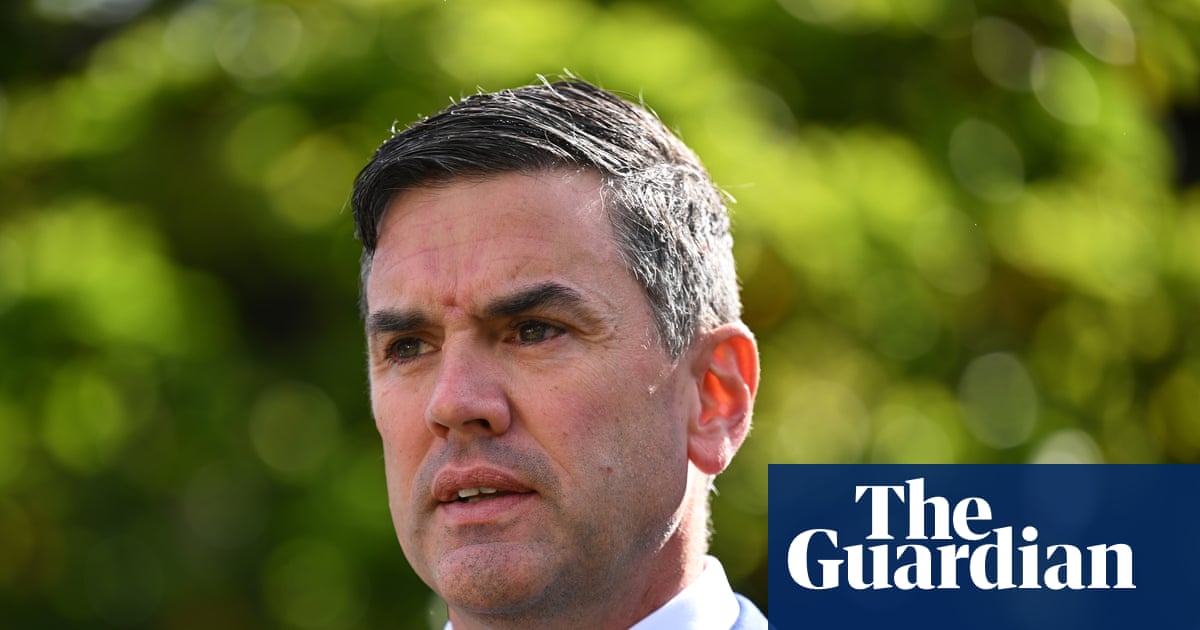Victoria police officers will spend less time doing paperwork and more time patrolling the streets in a bid to reduce crime and restore public confidence.
The chief commissioner, Mike Bush, announced the biggest restructure of the force in a decade on Monday, which he said was in response to the state’s “major crime problem” and “the lack of trust and confidence” in police to tackle it.
“In terms of those two very significant issues, we need to police differently. We need a reset. We need to reorganise ourselves,” Bush told reporters.
The restructure will cut back on centralised commands and departments and reduce the “administrative burden” on frontline officers, as well as cutting the number of deputy commissioners from six to four, with one dedicated specifically to crime prevention.
“We don’t have enough police on the frontline to prevent and respond to calls for service, because the way we’ve organised ourselves has kept a lot of them either in the back room or back at the station completing jobs that someone else should do on their behalf,” Bush said.
It comes after crime data released last month showed the state’s crime rate had risen 13.8% year-on-year in 2024-25, with theft the fastest-growing offence. At the time, Victoria police announced a target to reduce serious and violent crime by 5% each year.
Bush, who was sworn in about four months ago after previously leading the New Zealand police force, said he was particularly “surprised” to learn uniformed police officers handled reception counter and call-taking duties at stations across the state.
If these officers were redeployed to the frontline, he said it would amount to 1.4 million additional personnel hours a year.
Victoria police would now trial replacing sworn officers at counters with “alternate staff” as well as trialling new “investigation support units” of administration personnel, including former officers, to handle post-arrest paperwork. If successful, these changes would roll out statewide.
Bush said there would also be a “focus on retention and return to work”, noting of roughly 22,000 police, protective service and public sector staff, about 700 were on workers’ compensation, mostly for mental health injuries.
“Part of that’s because we’ve overburdened them with bureaucracy, duplicate systems – we’ve made their job tough,” he said. “We really want them back.”
after newsletter promotion
A new state crime coordination centre would be set up in the first half of 2026 to bring together intelligence, data and operational resources under one roof. It would operate 24/7 using technology to identify linked crimes, uncover patterns and provide real-time insights to officers on the ground.
Another review would begin early next year proposing further structural changes.
Bush said it was “over 10 years” since police last had such a “significant restructure” but he said he was confident it would lead to a “much more effective service to reduce crime and harm and increase public trust and confidence”.
Asked on Monday whether he supported mandatory sentencing, Bush said there must be “consequences” for serious offending.
“It’s important for deterrence, to know what that looks like, and there should be consistency,” he said. “If you’re going to commit a serious crime, commit serious harm against other people, you need to know what’s going to happen to you.”
.png)
 21 hours ago
14
21 hours ago
14








 English (US) ·
English (US) ·